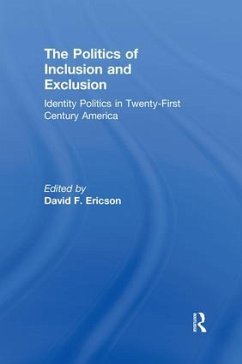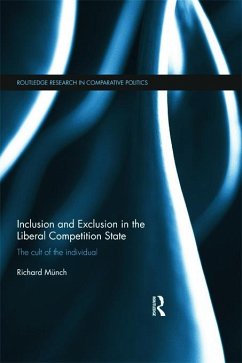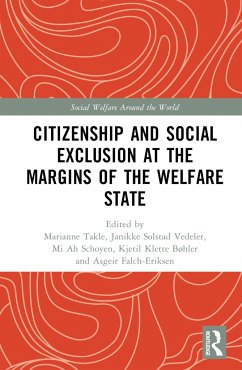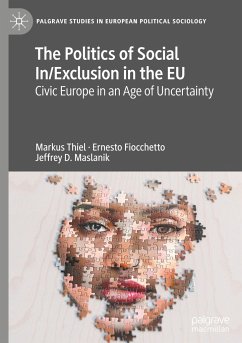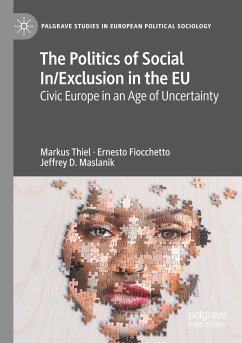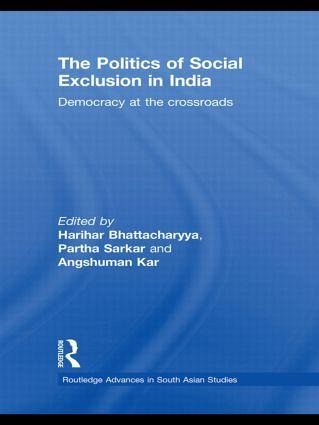
The Politics of Social Exclusion in India
Democracy at the Crossroads
Herausgeber: Bhattacharyya, Harihar; Kar, Angshuman; Sarkar, Partha
Versandkostenfrei!
Versandfertig in 1-2 Wochen
177,99 €
inkl. MwSt.

PAYBACK Punkte
89 °P sammeln!
Social exclusion and inclusion remain issues of fundamental importance to democracy. Using an interdisciplinary approach, the book examines at the multidimensional problems of social exclusion and inclusion, and the long-term issues facing contemporary Indian democracy.




